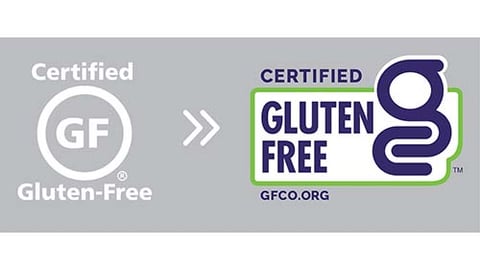Upcycled Certified Mark Debuts
The Upcycled Food Association (UFA) has unveiled a new certification mark, providing for the first time clear guidance regarding the presence of upcycled food ingredients in food, beverages, cosmetics, pet food, personal care products, household cleaners and dietary supplements.
According to UFA’s website, “Upcycled foods use ingredients that otherwise would not have gone to human consumption, are procured and produced using verifiable supply chains, and have a positive impact on the environment.”
Since, according to Project Drawdown, a San Francisco-based nonprofit working to help the world reach “drawdown” — a point when greenhouse-gas levels in the atmosphere stop rising and start to steadily decline — eliminating food waste is the single most effective act that consumers can take to reduce greenhouse gas emissions, the seal enables shoppers to work toward mitigating climate change by deciding what products to buy.
“The upcycled certification seal is transformative for centralizing the messaging around upcycled food,” explained Caroline Cotto, board president of Greenwood Village, Colorado-based UFA. “We want consumers to see the mark and immediately understand not only what upcycled food is, but more importantly, the impact upcycled food has from a climate perspective. Purchasing upcycled food puts the power back into the hands of consumers to make a tangible reduction in global food loss.”
A 2021 study published in the journal Food and Nutrition Sciences found that 80% of consumers, once educated about upcycled foods, said they would seek them out to purchase. However, just 10% of consumers are familiar with such products.
“Food waste accounts for 6% of all human-caused greenhouse gases,” noted UFA co-founder and CEO Turner Wyatt. “Mitigating it counts as the single most productive thing people can do to dial back climate change. In addition, businesses around the world lose $1 trillion a year to food waste. This seal and the certification program backing it will simultaneously help solve the food waste problem while saving businesses money. It also nurtures the creation of new businesses revolving around upcycled foods. Everybody wins.”
In 2019, Valley Cottage, N.Y.-based Future Market Insights estimated the current value of the upcycled food industry at $46 billion, with a predicted 5% compound annual growth rate. Through a broad consumer education campaign about the seal and food waste, the UFA aims to quickly double the industry’s growth rate, which the organization believes could prevent more than 8.8 billion pounds of food waste and 28 billion pounds of C02 emissions by 2030.
The UFA teamed with Seattle-based mission-aligned branding agency Modern Species; Drexel University, in Philadelphia; and San Juan Capistrano, California-based food and beverage design and development firm Mattson on the creation of the seal, following more than a year of intense collaboration among various stakeholders to develop the Upcycled Certification Standard. The standard provides a rigorous set of rules establishing definitions for upcycled ingredients and products, protocols for incorporating them into products, and the ability for certified companies to use the new consumer-facing upcycled food seal on products.
The Upcycled Certification Program is the world’s only third-party certification program for upcycled food ingredients and products. Open enrollment to apply for certification is scheduled to begin in June. Brands that achieve certification can choose from a horizontal or vertical mark based on what fits best on their products' packaging.
“If the UFA is the landmark of the upcycled food movement, we intend this new logo to be our flag,” said Dan Kurzrock, co-founder and executive board officer of UFA. “We can’t wait for certified products and ingredients around the world to fly it at full mast soon.”






